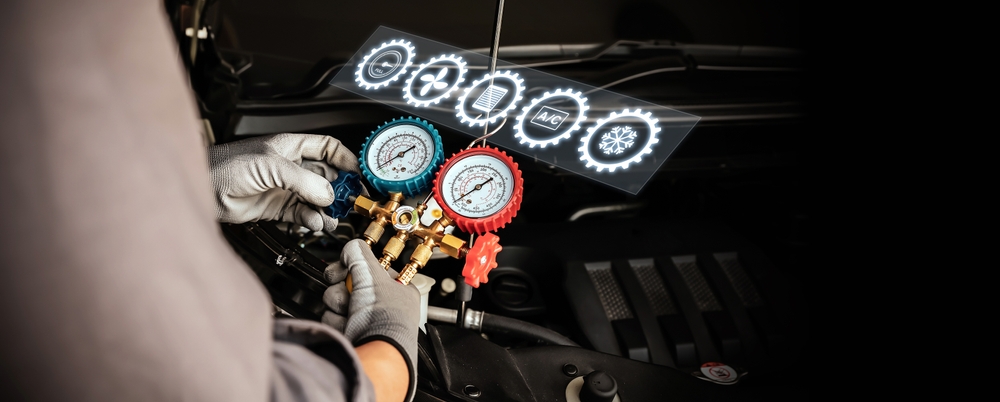Engine Repair Training: A Comprehensive Guide
Engine repair training teaches skills to diagnose, maintain, and fix gasoline and diesel engines. Programs often cover mechanical systems, electronics, and safety procedures, preparing students for roles in the automotive, marine, or industrial sectors.

What does engine repair training involve?
Engine repair training is a comprehensive program that covers various aspects of internal combustion engines. It typically includes both theoretical and practical components, focusing on the diagnosis, repair, and maintenance of different engine types. Trainees learn about engine components, systems, and their interactions, as well as troubleshooting techniques and repair procedures.
The curriculum often covers topics such as engine block assembly, cylinder heads, valve trains, lubrication systems, cooling systems, and fuel injection. Additionally, students may learn about electronic engine management systems, emissions control, and advanced diagnostic tools.
Where can one find engine repair training programs?
Engine repair training programs are available through various institutions and platforms. Technical schools, community colleges, and vocational training centers often offer comprehensive courses in automotive technology, which include engine repair as a core component. Some options include:
-
Traditional classroom-based programs at technical institutes
-
Online courses with hands-on components
-
Apprenticeships with experienced mechanics
-
Manufacturer-specific training programs
-
Continuing education workshops for professional development
When choosing a program, it’s essential to consider factors such as accreditation, course duration, and the balance between theoretical knowledge and practical experience offered.
What are the prerequisites for engine repair training?
While specific requirements may vary depending on the program and institution, there are some common prerequisites for engine repair training:
-
High school diploma or equivalent
-
Basic math and science skills
-
Mechanical aptitude
-
Good hand-eye coordination
-
Physical stamina to perform tasks in various positions
-
Strong problem-solving abilities
Some advanced programs may require prior experience in automotive repair or completion of foundational courses. It’s advisable to check with the specific training provider for their exact requirements.
How long does engine repair training typically take?
The duration of engine repair training can vary significantly based on the program’s depth and breadth. Here’s an overview of common timeframes:
-
Certificate programs: 6 months to 1 year
-
Associate degree programs: 2 years
-
Bachelor’s degree programs: 4 years
-
Apprenticeships: 2 to 5 years
-
Short-term workshops or specialized courses: A few days to several weeks
It’s important to note that while shorter programs can provide a solid foundation, more extensive training often leads to better job prospects and higher earning potential in the long run.
What career opportunities are available after completing engine repair training?
Completing engine repair training opens up a variety of career paths in the automotive industry. Some potential job opportunities include:
-
Automotive Service Technician
-
Diesel Engine Specialist
-
Small Engine Mechanic
-
Heavy Equipment Technician
-
Racing Team Mechanic
-
Fleet Maintenance Technician
-
Engine Rebuilder
-
Automotive Instructor
Many technicians also choose to specialize in specific engine types or brands, which can lead to niche positions in the industry. Additionally, with experience and further education, opportunities for advancement to supervisory or management roles may become available.
What is the cost of engine repair training?
The cost of engine repair training can vary widely depending on the type of program, duration, and institution. Here’s an overview of potential costs:
| Program Type | Provider | Cost Estimation |
|---|---|---|
| Certificate Program | Community College | $5,000 - $10,000 |
| Associate Degree | Technical Institute | $20,000 - $40,000 |
| Bachelor’s Degree | University | $40,000 - $120,000 |
| Online Course | E-learning Platform | $500 - $2,000 |
| Manufacturer-Specific Training | Automotive Company | $1,000 - $5,000 |
Prices, rates, or cost estimates mentioned in this article are based on the latest available information but may change over time. Independent research is advised before making financial decisions.
It’s worth noting that many programs offer financial aid options, scholarships, or payment plans to help offset the costs. Additionally, some employers may provide tuition reimbursement for employees seeking to enhance their skills through engine repair training.
Engine repair training is a valuable investment for those passionate about automotive technology. It provides the knowledge and skills necessary to diagnose and repair complex engine issues, setting the foundation for a rewarding career in the automotive industry. As vehicles continue to evolve with advanced technologies, the demand for skilled engine repair technicians remains strong, making this field a promising choice for those with a mechanical inclination and a desire to work with cutting-edge automotive systems.




